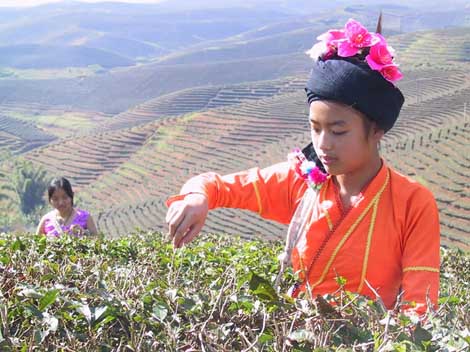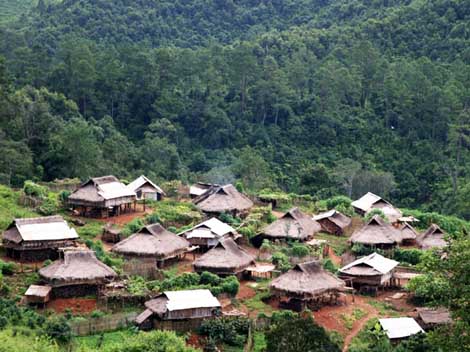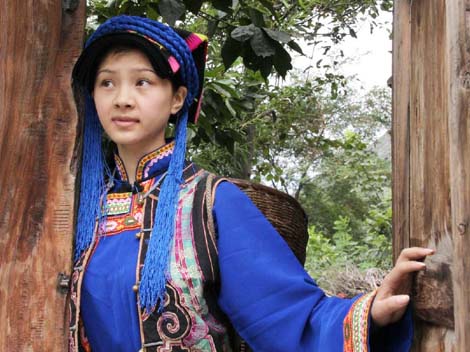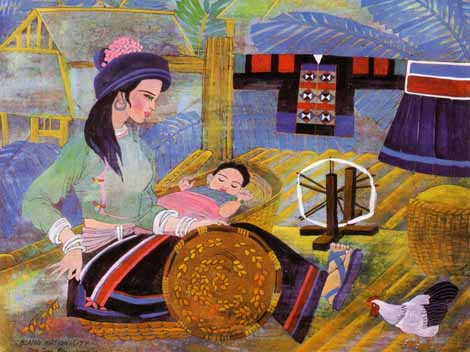The Blang ethnic minority is one of the oldest peoples in Yunnan Province, living mainly in the mountainous area of Meng Hai County of Dai autonomous prefecture in Xishuangbanna. Their earliest record can be traced back to the Han Dynasty (206-220 BC). The Blang have a population of 91,882 as per the year 2000.




Language:
As the Blang people live dispersedly, they speak different languages in separate regions. Basically the Blang language belongs to the Austro-Asiatic phylum with an alveolar sound and pronunciation. Without its own written characters, it uses those of the Dai and Han people.
Religion:
As many other ethnic minorities, the Blang worship their ancestors. However, the totems that they admire are not fierce beasts like the tiger or lion, but the bamboo rat and toad. They believe that when they see those small animals, they must keep away from them, or their relatives will pass away. They also believe in Hinayana Buddhism. Often, they purchase and copy lections of the Dai ethnic minority.
Arts and Crafts:
In the long development of the Blang society, there have been various artistic practices, such as literature, music, sports and handicrafts.
The Blang people have created abundant oral literature, taking the form of legend, tale, poem, aphorism, puzzle, and so on. The creation of the world and the solar system are the common themes. On festivals, they will sing impromptu in antiphonal style, accompanied by musical instruments such as the reed pipe, and the drum on a pedestal shaped like an elephant's leg. This is similar to the Dai people.
The most popular sport of the brave Blang ethnic minority is martial art, expressing their labor, self-defense, and imitating the activities of beasts.
The Blang people are also deft. The areas where they live abound in bamboo and vine, and most of them, even adult men, make use of that and can weave all kinds of baskets to be carried on the back, flower baskets, sieves, mats, and nearly all the furniture such as bamboo-strip tables. Their houses are also made of bamboo, which can be lived in for 20 years. They also make themselves simple blue and black clothes. Men customarily are tattooed, and women wear their hair in a coil, and like to adorn themselves with large ear-rings.
Food:
Their staple foods are rice, as well as corn, soybean, pea, and buckwheat. Acid fish, raw meat, and cured vegetables are also among their favorite foods.
Festivals:
Festivals of the Blang people are interesting. On June 23rd each year the Torch Festival is celebrated. All the householders get together in front of a tree and kill a pig to offer a sacrifice to the gods and to pray for a good harvest. A married girl will return to her parents' home to celebrate. On that evening, torches are lit and light up the fruit trees, indicating that the pests are burnt away.
Chengding Festival celebrates that 14-year old boys and girls have become adults. Girls light special branches that make black smoke, and then help the boys dye their teeth. Only after this activity, can they have the rights of love and marriage. Unlike the Han people, the Blang young people fully enjoy their right and get the support of families and society. On the evening under the bright moonlight, lads will wear new clothes and come to sing at the girls' bamboo houses. Girls will open their doors and express their admiration through singing, presenting tea, and smoke.


